Filter by
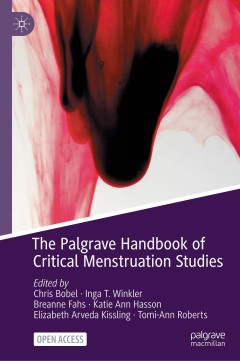
The Palgrave handbook of critical menstruation studies
This open access handbook, the first of its kind, provides a comprehensive and carefully curated multidisciplinary genre-spanning view of the state of the field of Critical Menstruation Studies, opening up new directions in research and advocacy. It is animated by the central question: ‘“what new lines of inquiry are possible when we center our attention on menstrual health and politics acr…
- Edition
- -
- ISBN/ISSN
- 9789811506147
- Collation
- l, 1037p. : ill.
- Series Title
- -
- Call Number
- 612.662 PAL p
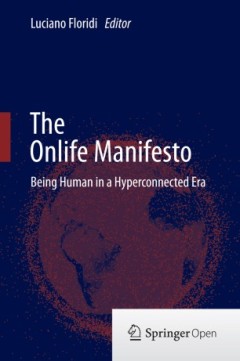
The onlife manifesto : being human in a hyperconnected era
What is the impact of information and communication technologies (ICTs) on the human condition? In order to address this question, in 2012 the European Commission organized a research project entitled The Onlife Initiative: concept reengineering for rethinking societal concerns in the digital transition. This volume collects the work of the Onlife Initiative. It explores how the development and…
- Edition
- -
- ISBN/ISSN
- 9783319040936
- Collation
- xiv, 264p. : ill.
- Series Title
- -
- Call Number
- 601 LUC t
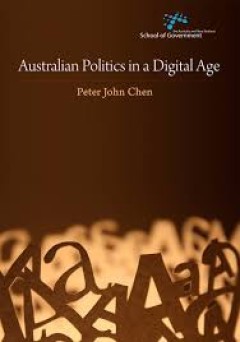
Australian politics in a digital age
Information and communications technologies are increasingly important in the Australian political landscape. From the adoption of new forms of electoral campaigning to the use of networking technology to organise social movements, media technology has the potential to radically change the way politics is conducted and experienced in this country. The first comprehensive volume on the impact of…
- Edition
- -
- ISBN/ISSN
- 9781922144409
- Collation
- xviii, 268 p.
- Series Title
- -
- Call Number
- 303.48330994 PET a
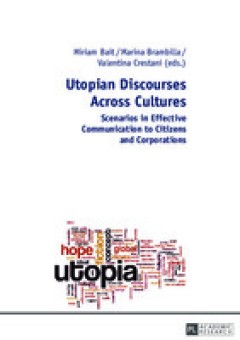
Utopian discourses across cultures : scenarios in effective communication to …
The term Utopia, coined by Thomas More in 1516, contains an inherent semantic ambiguity: it could be read as eu topos (good place) or ou topos (no place). The authors of this volume analyze this polysemous notion and its fascination for scholars across the centuries, who have developed a variety of visions and ways to explain the «realization» of utopian discourses. The experts in the fields …
- Edition
- -
- ISBN/ISSN
- 9783653061741
- Collation
- 214 p.
- Series Title
- -
- Call Number
- 335.02 UTO u
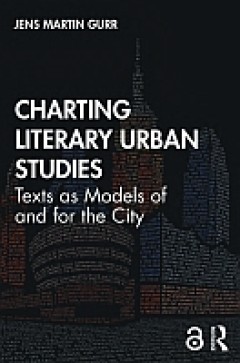
Charting literary urban studies : texts as models of and for the city
Guided by the multifaceted relations between city and text, Charting Literary Urban Studies: Texts as Models of and for the City attempts to chart the burgeoning field of literary urban studies by outlining how texts in varying degrees function as both representations of the city and as blueprints for its future development. The study addresses questions such as these: How do literary texts rep…
- Edition
- -
- ISBN/ISSN
- 9781000335873
- Collation
- XVI, 204 p.
- Series Title
- -
- Call Number
- 809.9332173 GUS c
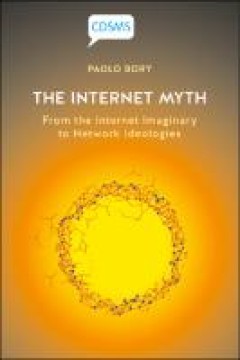
The internet myth: from the internet imaginary to network ideologies
‘The Internet is broken and Paolo Bory knows how we got here. In a powerful book based on original research, Bory carefully documents the myths, imaginaries, and ideologies that shaped the material and cultural history of the Internet. As important as this book is to understand our shattered digital world, it is essential for those who would fix it.’ — Vincent Mosco, author of The Smart C…
- Edition
- -
- ISBN/ISSN
- 9781912656752
- Collation
- xiii, 169p.: ill
- Series Title
- -
- Call Number
- 004.678 BOR i
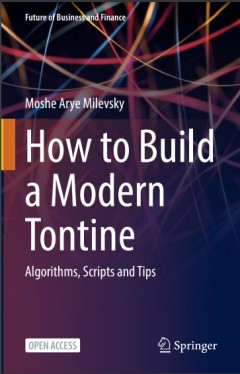
How the world changed social media
How the World Changed Social Media is the first book in Why We Post, a book series that investigates the findings of nine anthropologists who each spent 15 months living in communities across the world. This book offers a comparative analysis summarising the results of the research and exploring the impact of social media on politics and gender, education and commerce. What is the result of the…
- Edition
- -
- ISBN/ISSN
- 9781910634493
- Collation
- XXIV, 262 p.
- Series Title
- Why We Post
- Call Number
- 302.23 HOW h
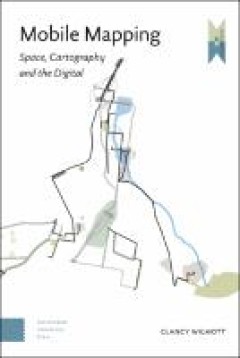
Mobile mapping : space, cartography and the digital
This book argues for a theory of mobile mapping, a situated and spatial approach towards researching how everyday digital mobile media practices are bound up in global systems of knowledge and power. Drawing from literature in media studies and geography - and the work of Michel Foucault and Doreen Massey - it examines how geographical and historical material, social, and cultural conditions ar…
- Edition
- -
- ISBN/ISSN
- 9789048535217
- Collation
- 348 p.
- Series Title
- -
- Call Number
- 526 WIL m
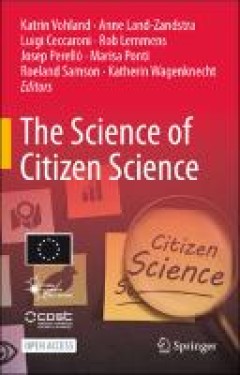
The science of citizen science
This open access book discusses how the involvement of citizens into scientific endeavors is expected to contribute to solve the big challenges of our time, such as climate change and the loss of biodiversity, growing inequalities within and between societies, and the sustainability turn. The field of citizen science has been growing in recent decades. Many different stakeholders from scientist…
- Edition
- -
- ISBN/ISSN
- 9783030582784
- Collation
- vii, 529p. : ill.
- Series Title
- -
- Call Number
- 303.483 SCI s
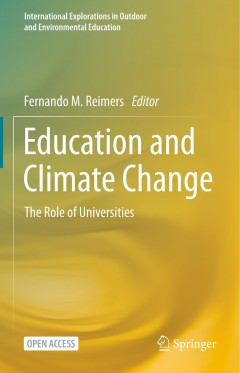
Education and climate change : the role of universities
This open access volume draws on a multidimensional model of educational change, the book reviews the field of climate change education and identifies some of the areas in which past efforts have fallen short in supporting effective pedagogical change at scale. It then formulates an approach to engage university students and faculty in partnering with schools and adult education institutions an…
- Edition
- -
- ISBN/ISSN
- 9783030579272
- Collation
- xiii, 201p. : ill
- Series Title
- -
- Call Number
- 370.115 EDU e
 Computer Science, Information & General Works
Computer Science, Information & General Works  Philosophy & Psychology
Philosophy & Psychology  Religion
Religion  Social Sciences
Social Sciences  Language
Language  Pure Science
Pure Science  Applied Sciences
Applied Sciences  Art & Recreation
Art & Recreation  Literature
Literature  History & Geography
History & Geography